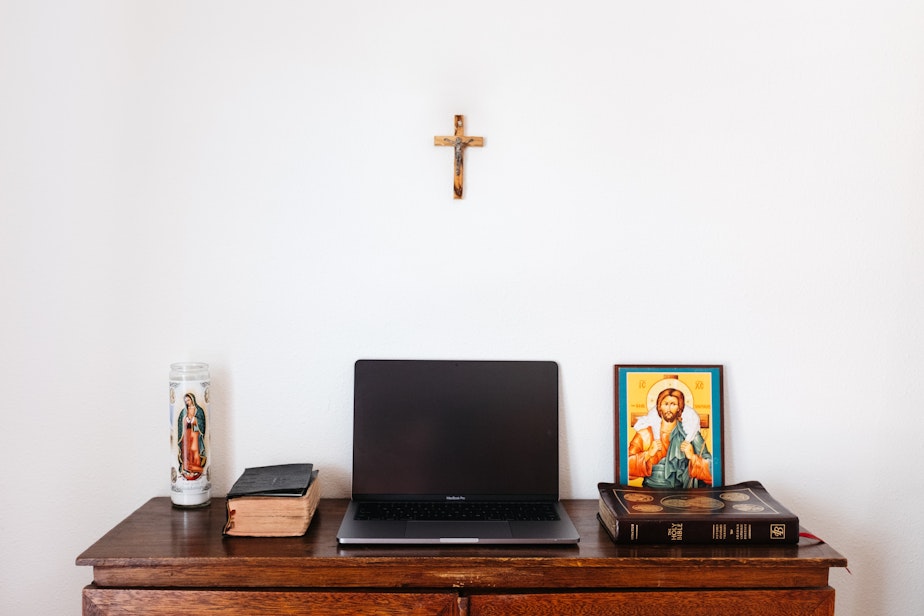Is the stay-at-home order unconstitutional?

The stay-at-home order includes places of worship. Bill Radke speaks with Rob McKenna, former Attorney General of Washington about the legal authority of the Governor and Washington counties.
Streaming sermons, Zoom shabbat, tele-prayer.
All sorts of virtual reality rituals and services have cropped up in response to Governor Inslee's stay at home order to limit the spread of coronavirus.
Some critics of the ban assert that the Governor's order is unconstitutional.
Republican Gubernatorial candidate Joshua Freed is suing the Governor. He claims the ban violates First Amendment rights that guarantee religious freedom, assembly and free speech.
The lawsuit, filed with the US District Court in Seattle, calls for a partial lift of the March 23rd order that bans, “all public and private gatherings and multi-person activities for social, spiritual and recreational purposes, regardless of the number of people involved, except as specifically identified herein.”
Former Attorney General of Washington Rob McKenna says that the lawsuit claim is not strong because the ban does not specifically target religious groups, it extends to the greater public.
"When you promulgate a law or regulation that applies to everybody," he says, "it's legitimate when it's in the nature of protecting public health and safety."
McKenna extends this argument to the right to assemble: if a government is going to infringe on the right to assemble, he says, it must have a rationale to do so - such as a pandemic.
"Constitutional rights to assemble or to gather to worship have to give way to the state's interest in protecting public health and welfare."





